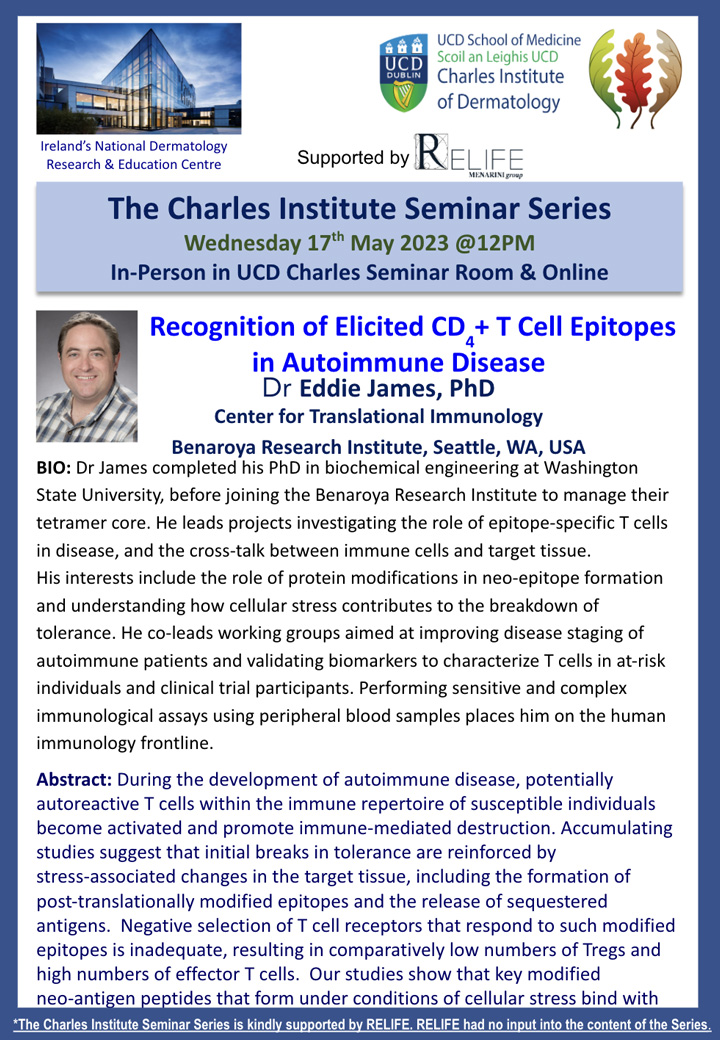Charles Institute Seminar Series 2022-23: Recognition of Elicited CD4+ T Cell Epitopes in Autoimmune Disease with Guest Speaker Dr Eddie James
Date of Talk: Wednesday 17th May 2023 @12PM
Location: Charles Seminar Room / Online Via Zoom
Talk Title: Recognition of Elicited CD4+ T Cell Epitopes in Autoimmune Disease
Speaker Details: Dr Eddie James, PhD
Center for Translational Immunology
Benaroya Research Institute, Seattle, WA, USA
Short Biography: Dr James completed his PhD in biochemical engineering at Washington State University, before joining the Benaroya Research Institute to manage their tetramer core. He leads projects investigating the role of epitope-specific T cells in disease, and the cross-talk between immune cells and target tissue.
His interests include the role of protein modifications in neo-epitope formation and understanding how cellular stress contributes to the breakdown of tolerance. He co-leads working groups aimed at improving disease staging of autoimmune patients and validating biomarkers to characterize T cells in at-risk individuals and clinical trial participants. Performing sensitive and complex immunological assays using peripheral blood samples places him on the human immunology frontline.
Abstract for talk: During the development of autoimmune disease, potentially autoreactive T cells within the immune repertoire of susceptible individuals become activated and promote immune-mediated destruction. Accumulating studies suggest that initial breaks in tolerance are reinforced by stress-associated changes in the target tissue, including the formation of post-translationally modified epitopes and the release of sequestered antigens. Negative selection of T cell receptors that respond to such modified epitopes is inadequate, resulting in comparatively low numbers of Tregs and high numbers of effector T cells. Our studies show that key modified neo-antigen peptides that form under conditions of cellular stress bind with greater affinity to autoimmune susceptible HLA proteins. Furthermore, T cells that respond to these peptides circulate at higher frequencies in affected individuals and exhibit disease-promoting phenotypes. This motivates the development of new therapies to limit these processes.
